4 Things You Didn’t Know About Google Search Console (And How It Could Be Working For You)
The number one factor that can dramatically increase your conversion rate is having more people visit your website. Attracting traffic to your site is a process that can include a combination of things, including search engine optimization, marketing strategies, and launching successful marketing campaigns.
There are so many eCommerce website owners who are constantly asking themselves, how can I drive more traffic to my site? What would you say if I told you that with Google Search Console you may already have the tools you need to increase website traffic by as much as 28%? The best part is, even though Google Search Console is one of the most comprehensive web tools available, it is free for use.
What Is GSC (Or, Google Search Console)?
Google Search Console (or GSC, formerly known as Google Webmaster Tools) is a free platform that works similarly to Google Analytics. It allows you to check indexing status and optimize visibility of your website, which basically means that it helps you monitor and maintain your websites presence in Google search results. It can also give you insight onto how well your website is optimized to appear in organic search results.
Here’s a list that Google names as some of the greatest benefits and uses of Google Search Console.
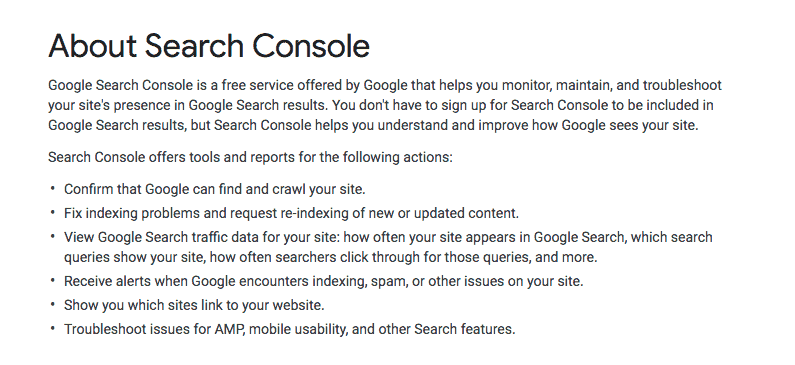
Google Search Console works on your website’s behalf to gather information about search appearance, search traffic, technical status updates, crawl data and more. When used correctly, GSC might be the most important tool in your eCommerce toolbox.
Google Search Console Vs Google Analytics
At face value, Search Console and Google Analytics can look like the same tool. So how exactly is Google Search Console different from Google Analytics? Qualitia Software states that a simple way to describe the difference between Google Analytics and Google Search Console (formerly Google Webmaster Tools) is this: Google Search Console reports on how search engines interact with your site, while Google Analytics reports on how website users interact with your site.
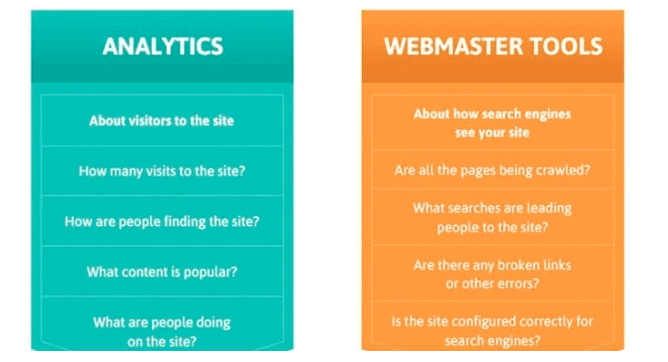
Analytics monitors things like how many visitors have been to your site, how are those visitors finding your site, and what is your most popular content with visitors. Alternatively, Google Console tracks queries like what searches are leading your visitors to your site, are there any broken links or errors on your site, and is your site correctly configured for search engines.
Both of these tools monitor and track data for different pieces of your website, and when used alongside each other can easily and effectively increase your website’s traffic, SEO ranking, and conversion rate.
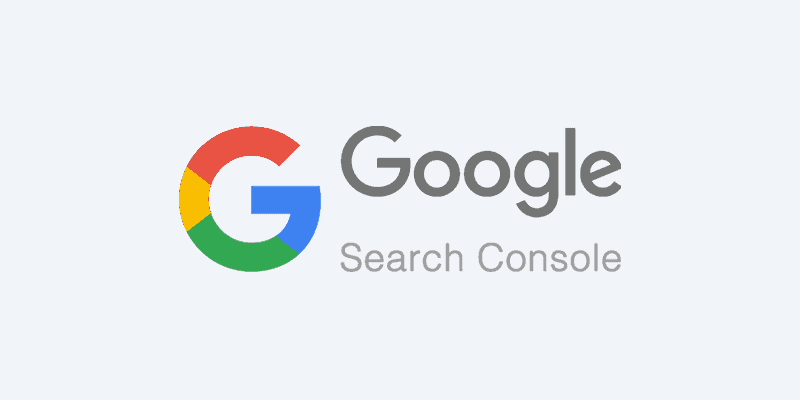
How To Use Google Search Console
Getting started using GSC can be a bit overwhelming. There are some complicated-sounding technical terms, and there is lots of data and information to sift through. But once you get the hang of it, GSC may be the single most important tool you use to optimize your website for SEO and CRO.
So here is our quick-start guide to get you on your feet, and get started using this incredible tool. We’ll also include some of the incredible benefits that Google Search Console has to offer.
Setting up Google Search Console is actually very simple and straightforward. The more complicated stuff (like understanding all the benefits that GSC has to offer) will come later.
We love this step-by-step list from HubSpot giving detailed instructions of how to add your website to Google Search Console.
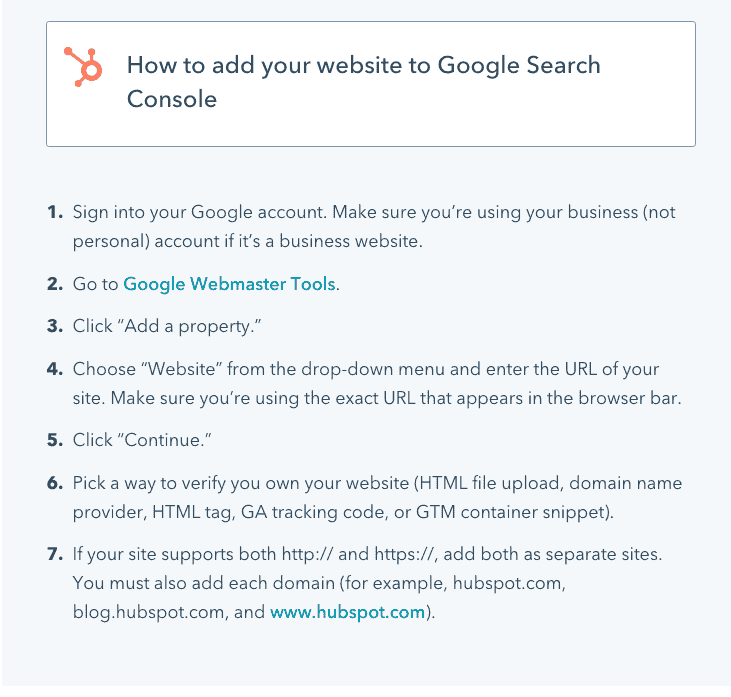
And if you’re short on time, here is a great 4 minute video with some detailed instructions and visual help.
How GSC Can Help Drive Your Traffic
There are countless benefits to using Google Console, but if you only have two minutes to spare today, check out this video explaining how using Google Search Console correctly can drive up to 28% more traffic to your site organically.
Increasing your traffic through Google Search Console is the simple result of a few steps you can take.
1. Submit A Sitemap
In our last blog, we talked a little bit about sitemaps. Google has little crawlers, also known as “spiders”, that crawl your website and analyze the information they find. These crawlers have a job: to index your website’s content in order to more accurately present it to people who are searching the web. They are analyzing all kinds of data including your website content, keywords that appear on your pages, tracking how often your site is updated, etc. in order to provide searchers the most relevant results. Google’s crawlers can learn a lot about a website, its pages, and the information found in those pages on their own. But you can help those crawlers (and increasing your own SEO ranking in the process), by submitting a sitemap to your Google Console. By submitting a sitemap in Google Search Console, you can guide Google’s crawlers through your site’s content, which helps them more accurately categorize your content and will help you rank higher in search engine results.
Here are some quick instructions from Shout Me Loud on how to submit your own sitemap to Google Search Console.
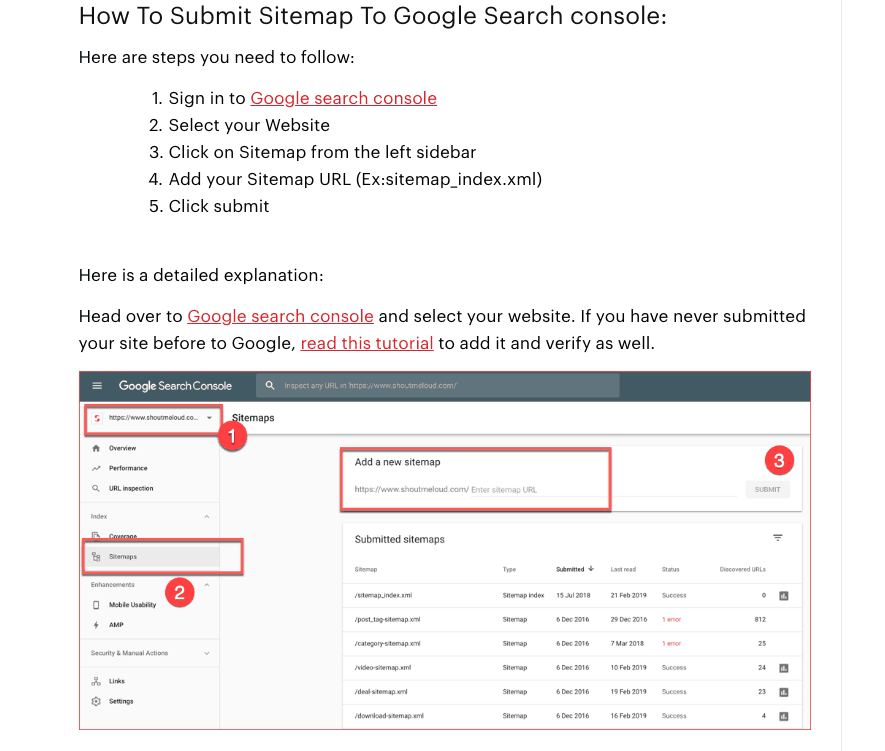
2. Identify Keywords That People Are Using To Find You
Through its’ unique analysis abilities, GSC can not only show you how much traffic you’re generating through organic search, but it can also help you find the specific search terms people are using to get to your website. Knowing and understanding these terms can help you better understand the search patterns of your ideal visitor, and can help you generate similar relevant keywords and content. More searches for more relevant content equals higher organic search ratings and more website traffic. More website traffic equals greater conversions for your site.
3. Identify Your Most Popular Content
Every website will have some pages that perform better than others in search engine rankings. These pages are the ones with the content that is most relevant to what people are most frequently looking for. Knowing which of your pages is performing better than the others is a great insight into how your visitors are finding you, and what content they like to see. This data is all part of better knowing your customer, and providing the kind of content that they want to consume. Creating more relevant content can dramatically increase your SEO rankings, and will also show you where you need to be investing the most energy and time on your site.
4. Understand How Well You’re Optimized For Mobile
Today over 70% of website traffic is coming from a mobile device so having a website that is optimized for mobile is imperative to SEO rankings and click-through rates. GSC has a tool that can help you monitor how well your site is optimized for mobile devices. Knowing your mobile usability statistics will not only help you increase your SEO rankings (as that is a high ranking factor for Google), but it will also create a more positive user experience, equaling better customer feedback and can even generate some returning customers.
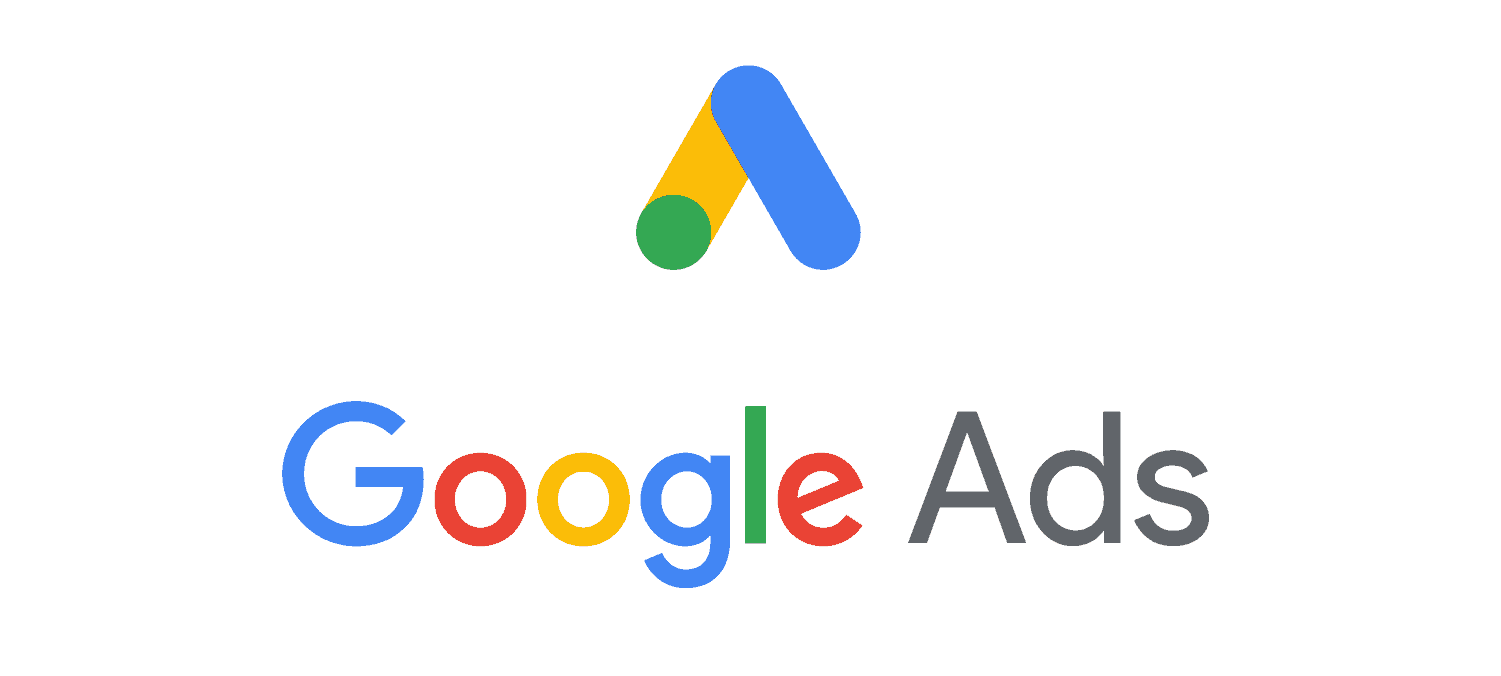
Why Should You Link Your Google Ads Account To Search Console?
Google Ads reporting tools will show data on your ad’s post-click performance metrics: it will show data for users who clicked on your Google Ads ads and then came through to your website, or installed and started using your mobile app.
However, when you link a Google Ads account to search console, it opens up a whole new realm of website monitoring and data, including how often your ads are being shown to potential customers, as well as which keywords are triggering those impressions (or the point in which an ad is viewed once by a visitor or displayed once on a webpage). Once you link your Google Ads and Search Console accounts, you’ll be able to view your organic search results right alongside the performance statistics for text ads in your Google Ads search campaigns.
Using this data, you can see how your ads performed when triggered by actual searches that people are typing into engines like Google and Yahoo. You can see how often your ads rank higher in search results than those of your competitors. You will be able to monitor if people reach your website via ads or organic search results. And you can evaluate which campaigns have the biggest changes in clicks, costs, and conversions.
By analyzing these statistics and data, you can improve your site’s overall performance. It can help you determine other related and successful keywords, and can help you to tailor your ad to the users who are searching for your specific product or services by optimizing your presence on high-value queries (or, in human terms, you can find out which keywords and ads are making people click through and complete a purchases). Understanding these customer behaviors can help you optimize your site to attract your ideal visitor.

Analyze, Analyze, Analyze
In almost every blog post we publish we include this step, because it is so vital to the success of your website. You can have an incredible product, a good marketing campaign, wonderful customer service department, and still not know how to create a successful business long-term if you haven’t taken the time to analyze and understand your successes and your failures. What works and what doesn’t? What is your ideal audience looking for? What kind of ads and images are inspiring your customers to click-through to your page? The digital world of commerce is also constantly evolving and changing, so something that’s working today may need to be re-tooled in the future. The only way to stay ahead of the curve and understand what is making your business a success (in order to emulate that success in the future) is to analyze your data, track your results, and understand your customer.
eCommerce and website ownership are rarely easy, but they can be incredibly rewarding and successful.
Are You Stuck?
We’ve just handed you a ton of information. It can be a little overwhelming getting started. It can be even more overwhelming when you have a thousand things on your to-do list, and we’ve just added one more step to running a successful eCommerce business. But that’s where epicShops is here to help. If you’re interested in tracking and monitoring your site’s data for future success, but don’t know when you’ll find the time, let us help! If you’re not sure how to get started setting up your very own Google Search Console account, we can handle it. Even if you already have all the right tools set up, but aren’t sure how to analyze your data and use it to your advantage, we can help you strategize and set up a plan of attack that will lead to future successes for you and your website.
Don’t stress, just reach out to us, and ask us how we can help you reach your business goals today.










